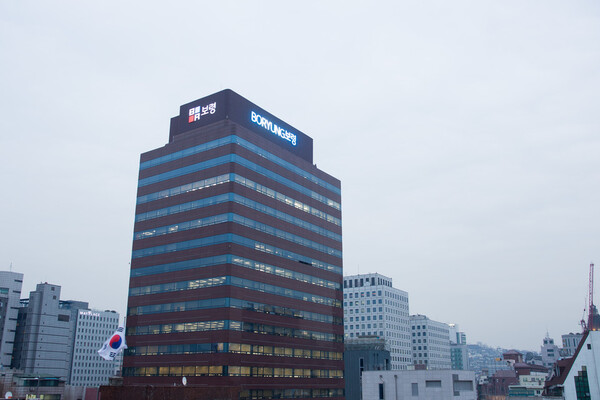Boryung, formerly Boryung Pharmaceutical, said Monday that its new anticancer drug, BR101801, has been designated as a developmental orphan drug by the Korean Ministry of Food and Drug Safety.

The designation was made to address the unmet medical needs of peripheral T-cell lymphoma (PTCL), a rare cancer.
PTCL is malignant lymphoma that progresses rapidly and has a low response rate to treatment. With a relapse rate of 68 percent, PTCL is a highly lethal disease with limited treatment options.
BR101801 is a first-in-class anticancer drug that inhibits the three key growth regulators of cancer cells -- PI3K gamma (γ), PI3K delta (δ), and DNA-PK -- simultaneously and is being developed for relapsed or refractory PTCL after treatment.
As there are no second-line standard treatments for patients with relapsed or refractory PTCL, Boryung believes that BR101801's superior clinical performance could be a new treatment option. In 2021, its phase 1a trial confirmed a complete response in one out of nine PTCL patients and a partial response in two.
Boryung is conducting a phase 1b trial of BR101801 in relapsed or refractory patients for completion later this year. BR101801 was granted orphan drug designation by the U.S. Food and Drug Administration last October. The MFDS’ orphan drug designation will likely further accelerate development.
The orphan drug designation allows for a conditional license after completion of phase 2 trials, allowing for an early launch.
"The orphan drug designation has reaffirmed the urgency of developing a treatment for PTCL and the clinical excellence of BR101801," said Kim Bong-seok, head of Boryung’s Center for New Drug Research. "We will do our best to provide hope for PTCL patients suffering from limited treatment options by stepping up follow-up clinical trials.”
Related articles
- Boryung Consumer Healthcare launches 'Coenzyme Q10 Max'
- Boryung launches alcohol-free breast cancer drug
- Boryung, Axiom Space finalize joint venture agreement amid US-Korea space cooperation
- Boryung terminates exclusive antacid supply deal with Sinopharm
- Boryung, HK inno.N to co-market their flagship hypertension and GERD drugs

